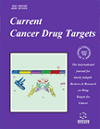
Full text loading...

The current review delves into the transformative role of precision medicine in addressing Colorectal Cancer [CRC], a pressing global health challenge. It examines closely signalling pathways, genetic and epigenetic modifications, and microsatellite instability. The primary focus is on elucidating biomarkers revolutionizing CRC diagnosis and treatment. Genetic biomarkers encompass non-coding RNA, epigenetic markers, TP53 mutations, and KRAS, NRAS, and BRAF gene alterations. Targeted therapies, including anti-EGFR, anti-VEGF, immune checkpoint inhibitors, and HER2-targeted treatments, are explored along with their mechanisms and clinical applications. Additionally, we highlight the importance of utilizing personalized treatment strategies by employing molecular profiling and genetic testing. These approaches facilitate the identification of appropriate patients for targeted therapies. Clinical trials supporting these treatments are presented, emphasizing response rates and survival outcomes. Detailed exploration of resistance mechanisms to targeted therapies and strategies to overcome resistance is also provided, paving the way for more effective regimens. Directions for future research in precision medicine, such as biomarkers, combinations, and liquid biopsy in the oncology field, are described. However, the precise application of precision medicine in CRC comes with questions such as costs, considerations of ethical factors, and the need to sensitize patients. Nonetheless, based on a meticulous analysis of several aspects, precision medicine finds itself equipped with the ability to enhance the patients’ prognosis, thereby, lessening the global oncologic burden of CRC and provide important information to the clinician-scientist and policymaker that might benefit from the ongoing development of precision medicine.

Article metrics loading...

Full text loading...
References


Data & Media loading...